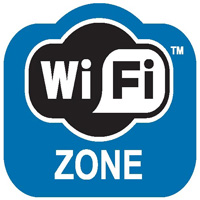  The Wi-Fi services in the country are certain to face tough times ahead. First it was the Bangalore and Ahmedabad blasts where it was found out that militants had claimed responsibility for the blasts using an unsecured Wi-Fi connection of an American executive.
Yesterday’s Delhi blasts reveal that the same concept was used this time as well. The Indian Mujahideen claimed responsibility for the blasts using through an email sent through a unsecured Wi-Fi connection of Ms Kamran Power Private Limited in Chembur, Mumbai.
These incidences have put a question mark on the security features of Wi-Fi services.
While malls, commercial premises as well as Coffee shops are increasingly offering these services, the same is being done with little care for security aspects feel experts.
The scenario is only set to become more complex after entry of wireless broadband services through WiMAX and data services through 3G, say observers.
While internet cafes have been brought under the purview of law (atleast on papers) with identity cards and other details must before using the service, Wi-Fi services have come in handy for the militants who now need to identify only an unsecured Wi-Fi connection to send their message across to agencies without the fear of getting traced. |